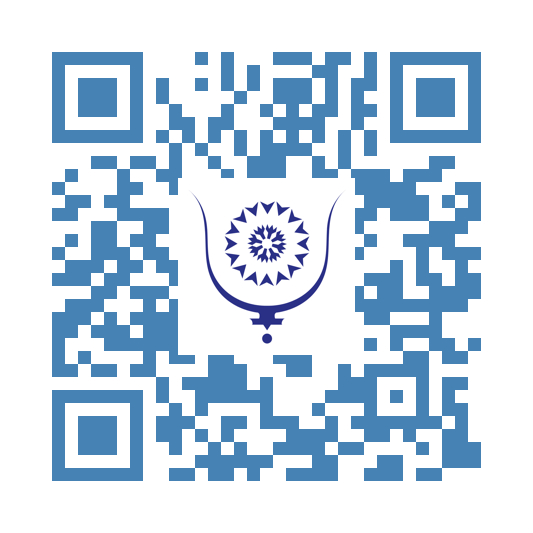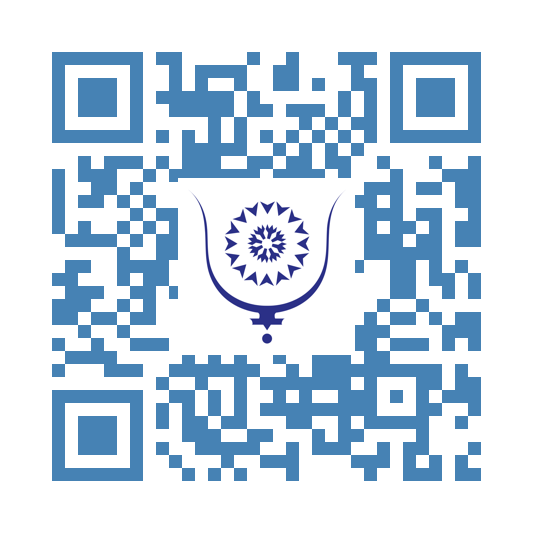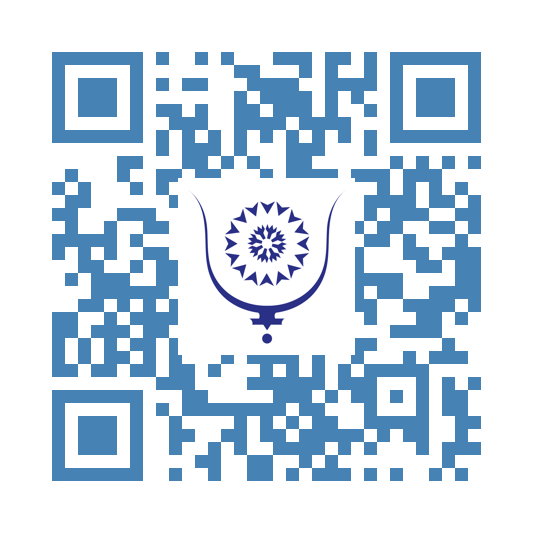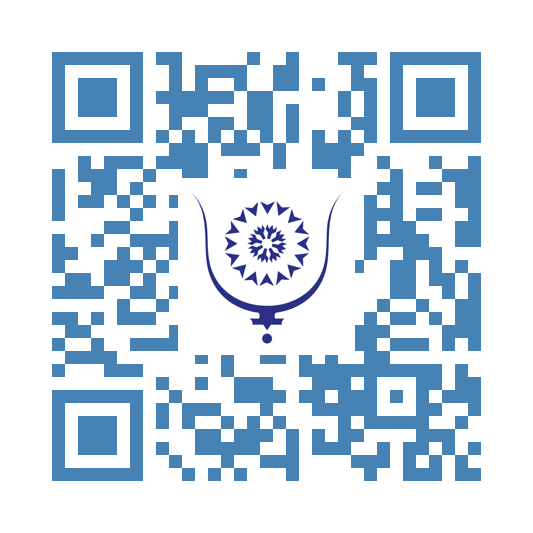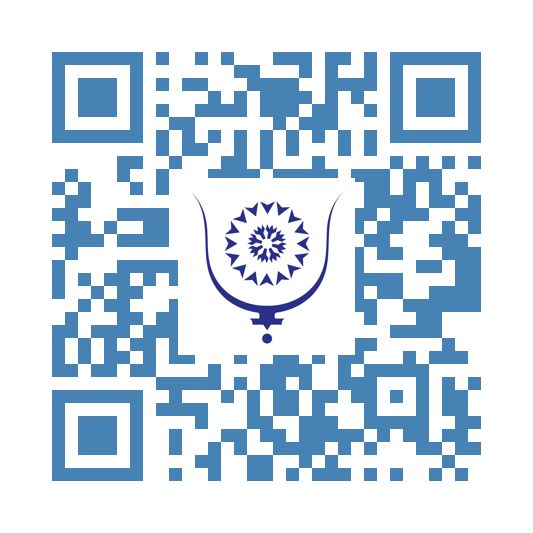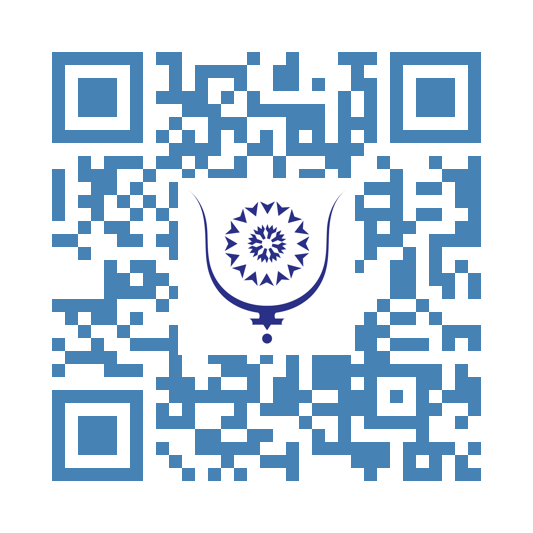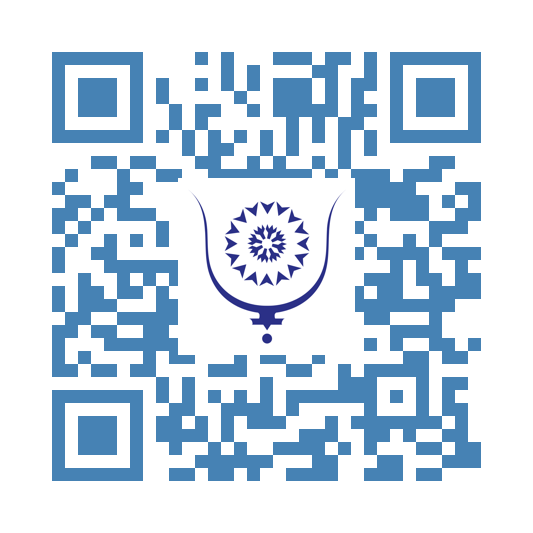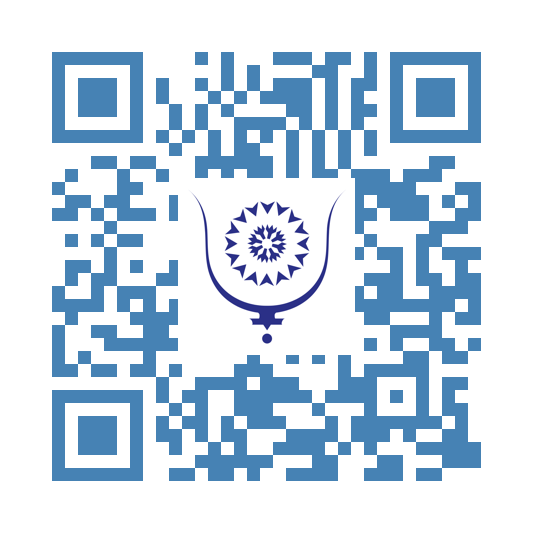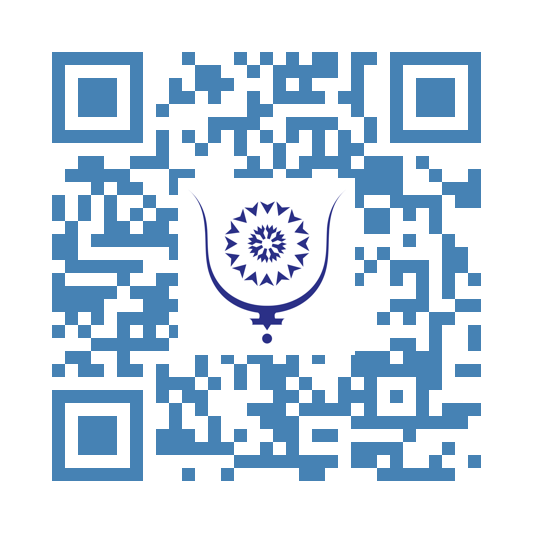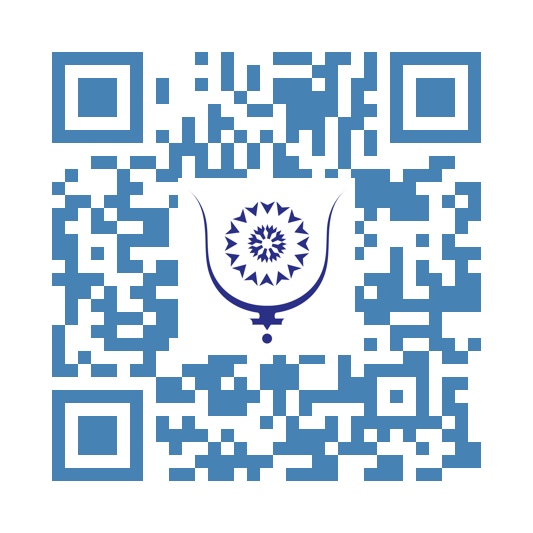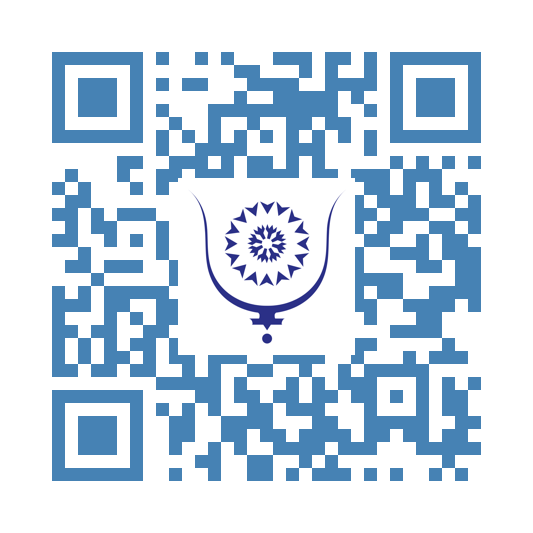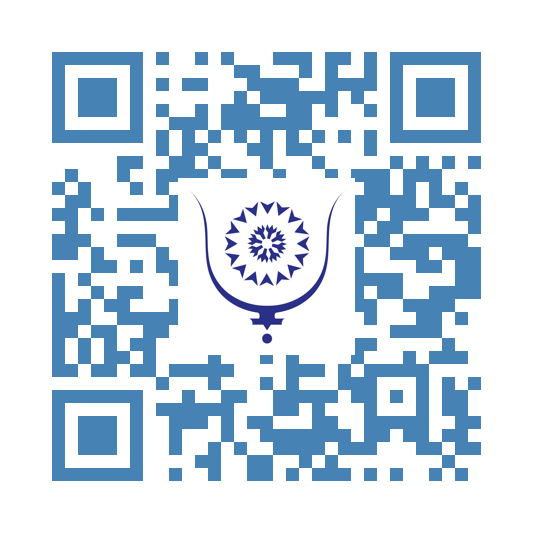It Starts with One Click. It Could Change Your Writing Life.
Picture this: You post your story. Within minutes, thoughtful writers offer ideas. You tweak, improve, and suddenly, you’re growing faster than ever. That journey starts by joining our private Discord now.

Think Forward.
Philosophy
The Radiance of a Lady
Your love illuminates my heart,
And you have forbidden me to reveal this honor.
How can the light of your brilliance be dimmed
When it radiates from everywhere?
It shines like a sapphire,
a diamond, or a jewel,
And dazzles everyone
with your blonde beauty.
You do not believe in my love,
In turn,
While I can love no one else but you;
This is my destiny, this is my faith.
You are my heart and my soul,
You are my destiny, you are my law.
I cannot bear it when you are far away, beautiful woman,
You who soothe my heart in flames.
In you, I find all my vows,
You who make my days happy.
Dr. Fouad Bouchareb
Inspired by an Andalusian music piece, "Bassit Ibahane"
December 13, 2025
https://youtu.be/wlvhOVGyLek?si=5tt6cm0oChF1NQJJ
Eight Minutes in the Past 1427
Once, at the end of a cold afternoon, I sat facing the Sun, which would set in a few minutes. Out of habit, I looked at my watch and checked the time. Even though it was a cold late-autumn afternoon, the Sun was there, in a clear atmosphere, with very few clouds near the horizon.
Then I remembered having read the account of an astrophotographer who, also on a cold afternoon, held his open hand out toward the Sun and was able to feel its energy in the form of heat. So I did the same, and it worked! I could feel its energy reaching me like a directed ray.
At that moment, my mind involuntarily began to work and was taken over by the following thought: the Sun is approximately 150 million kilometers away from us. Light takes eight minutes to travel that distance, which led me to think that the light I was seeing had left the king star eight minutes earlier. Coincidence or not, since some claim it does not exist, and I am practically convinced of that, the moment the Sun disappeared beyond the horizon occurred eight minutes after I had checked the time. In other words, that moment had already happened at the exact instant I sat facing the Sun and extended my hand to feel its energy.
I conclude, based on this personal experience, that a moment we imagine and that has not yet happened already exists, whether it is eight minutes from now, one week, four years, twenty-five years, or even at a time when we will no longer be here, at least physically, or inhabiting the current shell but another one.
Therefore, seek your moments. Know that they already exist, and that certainty is your lighthouse to guide you to that moment which, once again I say, already exists! It is already ready somewhere, at some moment in the universe. I sought the moment of the sunset, which was eight minutes ahead of me. It does not matter how far away your desired moment is, it is there. Believe in this! Many times it is difficult, but believe it, because it is real.
The World Is Smaller Than It Seems 2703
At least to my imagination. Yes, my imagination again! I can say that much of who I became was shaped by the power my imagination held throughout my childhood and a good part of my adolescence. That’s because I was limited by my field of vision and by the perspectives that presented themselves before me. I can say that the visual realm always occupied a place of prominence in my formation; perhaps that is why I am such an admirer of the visual arts, especially photography, an art I practice as an amateur.
But why this title? Why is the world smaller, or why does it seem smaller, at least in my perception? Well, the place where I grew up provided the elements for this construction. My house faced the sea, not an ocean, but the back side of a bay, still a sea nonetheless. And just behind it, a small rise, modest, yet sufficient to create an interesting perspective, because both the Sun and the Moon rise precisely behind that elevation, which actually has a horseshoe shape, giving an intriguing outline, with its highest point between east and north. And back then, some forty years ago, there were far more trees and far fewer houses.
That’s where the magic happened. For instance, when a full Moon began to emerge behind the hill, among the trees, accompanied by a characteristic wind of autumn or spring, an entire scene would take shape, one that embraced me and held me for hours, often deep into the night. As the world grew quieter, the sounds of the night, the nocturnal fauna and even the discreet whisper of the gentle wind, came to the fore, enriching the magic being built in my mind. I often felt almost capable of controlling the elements of nature with my thoughts alone.
And when I looked around me, and up at the sky, the illusion created by perspective gave me the impression that the curvature of the planet was right there, very close to me, in the full 360 degrees around. For that reason, it isn’t hard to understand how, in a very, very distant past, thinkers came up with the idea that above us there truly was a dome along which the celestial bodies traveled, a sky as if it were a curved surface, projected there purely to serve as a spectacle for our eyes.
Of course, we know that isn’t how it is. But understand that, for a child’s mind still under construction, this idea can be deeply seductive: that a Creator made all of this to compensate us for all the trials and challenges we face day after day. It was as if, after a long day of work and sacrifice, you sit down in your comfortable armchair after dinner and watch your favorite TV program.
And I, who often preferred the natural spectacle over television, imagined that the curvature around me was the edge of the world, so close and yet still beyond my reach. And what lay beyond that boundary? Well, as I’ve said before, in other essays, beyond that limit began another world, not my own, but one that, with the help of a special means of transport, like a spacecraft, I could reach…
But that, I’ll leave for another story.
Light Pollution and the End of the Construction of Imagination – Part 2 2910
Well, as I said in the previous article, I grew up and became a scientist. Not an astronomer, but a biologist. A biologist passionate about the stars. And many may ask: why didn’t you study astronomy? There are three reasons for that. The first is that I love biology. The second is that I was never good at mathematics. And the third is that I discovered that astronomers nowadays barely look at the sky. Telescopes work automatically, providing data to be analyzed later. That romantic astronomy of the past no longer exists. It was almost poetic, because imagination was the fuel for those scientists. Therefore, in cases like mine, it is much better to remain an amateur.
This reminds me of a curious anecdote in which the writer Isaac Asimov is said to have refused an invitation to visit a factory where robots performed tasks on assembly lines, because he did not want to compromise his imagination.
Returning to my story, when I was 21 years old, my father surprised me by taking me to a well-known store and buying a telescope. It was a relatively simple instrument, with a 60 mm aperture, but it allowed me to see the surface of the Moon perfectly, as well as Jupiter’s four largest moons and even Saturn’s rings. I don’t even need to say how I felt, do I? I became a child again! And that telescope is still here with me today, 30 years later.
But here comes the bad part, which gives these two articles their title… Light pollution has reached extremely high levels, to the point that in large cities, when you look at the sky, you see very few stars, only the brightest ones. City lights have erased the night sky. What child today will look up at the sky and be enchanted by all that immensity? Who will feel themselves on the shores of the cosmic ocean, as Carl Sagan said in the first episode of the classic series Cosmos? How will imagination be built?
In the same way, the inspiration of many poets and artists will be compromised. A child today, upon hearing stories of a time when the sky was filled with shining stars, might think that either the batteries ran out and no one replaced them, or that the bulbs burned out and no one changed them. It is still a child using their imagination, but without having experienced one of the most beautiful spectacles of creation.
That spectacle is still there, happening, and it will continue to happen for a very, very long time. Or rather, as long as time exists, it will continue, but with a curtain separating the stage from the audience. Today there are movements and campaigns aimed at solving this issue, but I believe it is a great challenge to overcome. Until then, one alternative is to leave large urban centers and seek regions far away, at least 50 km from these cities, where one can truly enjoy the magical view of a clear and genuinely dark sky.
I always wish clear skies to everyone, and ad astra!
Light Pollution and the End of the Construction of Imagination – Part 1 3246
One of the memories I carry most fondly is when my interest in everything related to outer space first awakened. I clearly remember that in 1980 I saw a TV report about a lunar eclipse that we would be able to observe. The images shown on the news program impacted me so deeply that I could hardly sleep that night. The sight of the lunar craters, caught in that characteristic interplay of light and shadow, became etched in my mind.
The next day, I questioned a teacher who was a friend of my family almost to the point of exhausting him, asking so many questions about the subject. Next year, I also saw TV advertisements announcing the theatrical release of "The Empire Strikes Back". In a way, my imagination was launched in a manner analogous to the catapult effect that spacecraft and space probes use when they swing around planets.
There wasn’t a single clear night when I didn’t spend hours looking up at the sky, at the immensity of the universe. At that time, the night sky was truly dark, since light pollution caused by city lights did not yet have as significant an effect as it does today. In 1982, Carl Sagan’s series "Cosmos" also premiered on television, and even its soundtrack struck me deeply.
Then, in 1984, with the debut of several animated series, two of them being "Groizer X" and "Star Blazers", the American version of "Space Battleship Yamato", I experienced yet another “gravitational catapult” effect, further fueling my imagination. In 1986, the passage of Halley’s Comet took over newspapers, magazines, TV programs, and even my school science books. That was it! This was the definitive confirmation of my passion for the space.
At that time, however, I still lived in the realm of fantasy, driven solely by what my imagination brought me. I would look at the sky on clear nights and think that traveling through space was like it was in the movies, challenging, full of adventures and dangers, yet seeming simple and even comfortable. After all, in science fiction films, many aspects of physics were disregarded, using a kind of poetic license.
But I grew up. I became a scientist. My gaze acquired a new perspective, yet without ever losing the magic of imagination from the beginning of this story. What came next? In the second part of this story, I will conclude…
Clear skies to all, and Ad astra!
Chaos Magick 4720
Chaos Magick is a modern magical tradition that emerged in the late twentieth century, emphasizing practical results, flexibility, and experimentation over fixed belief systems or inherited dogma. Rather than adhering to a single cosmology or spiritual authority, Chaos Magick treats belief itself as a tool—something to be adopted, modified, or discarded according to its effectiveness.
The movement is most strongly associated with Peter J. Carroll and Ray Sherwin, whose writings in the 1970s and 1980s helped formalize its principles. Drawing inspiration from earlier occult systems—such as ceremonial magic, shamanism, Eastern mysticism, and even science fiction—Chaos Magick deliberately rejects the idea that any single symbolic framework is objectively true.
At the core of Chaos Magick is the principle that gnosis, or a focused altered state of consciousness, is essential for magical work. Gnosis can be achieved through intense concentration, meditation, ecstatic practices, ritualized movement, sensory overload, or deep silence. In this state, the conscious mind is bypassed, allowing intent to be impressed more directly upon the subconscious.
One of the best-known techniques in Chaos Magick is sigilization. A sigil is created by transforming a clear intention into an abstract symbol, which is then charged during a gnosis state and subsequently forgotten. The forgetting is considered crucial, as it prevents conscious interference and allows the intention to operate at a deeper psychological or symbolic level.
Unlike traditional magical systems, Chaos Magick places little emphasis on moral absolutes, hierarchies of spirits, or prescribed rituals. Practitioners may freely borrow gods, demons, angels, archetypes, or fictional entities, using them as temporary symbolic lenses rather than literal beings—although individual interpretations vary widely. What matters is not belief in an external authority, but whether the practice produces meaningful change.
Chaos Magick is also strongly influenced by postmodern philosophy, psychology, and systems theory. It embraces uncertainty, contradiction, and paradox, viewing reality as fluid and participatory rather than fixed. This makes it particularly appealing to practitioners who are skeptical of tradition yet still interested in ritual, symbolism, and altered states of consciousness.
Chaos Magick is a pragmatic and experimental approach to magic that prioritizes results over belief, adaptability over tradition, and personal experience over doctrine. It represents a distinctly modern form of occult practice—one that mirrors contemporary views of reality as dynamic, subjective, and shaped by perception and intent.
Mental Archaeology for the Rescue of My True Essence 4842
Like an archaeologist, I embarked on a true journey with the purpose of finding the site where my essence was left behind and buried under new constructions. Today, I see clearly that it was a great mistake to abandon the path that had always been prepared for me. Therefore, it is now necessary to carry out a true archaeological work and excavate everything I denied, ignored, and left behind.
Excavating my mind has been a hard and time-consuming task, for it is necessary to remove layers that, for a long time, have been covering my true essence. Now, what matters most is to find all of this well preserved. And once my true essence is found, I have no doubt that my spiritual growth will finally take place.
But I also know that I will face heavier battles, since the egregores in which we are fully immersed do not accept this rupture, as it is we who feed them. What motivates me is knowing that it is entirely possible to break free from these egregores, from our limiting beliefs, and from everything that imprisons us while we are in this state.
I felt my spirit crying out for freedom all this time, and I believed I was giving it that freedom. But today I recognize my mistake, and now I finally understand why, even believing my spirit was free, I continued to hear its cries and lamentations.
My moment is now! Everything is in motion! I am broken, but the process of regeneration has already begun. And, as I heard from a very important voice, and continue to hear every day, at various moments: “It is already happening!”
I have received a new strength. I am fully aware that I will still face many obstacles; however, the difference now is that, knowing I have found the true archaeological site of my mind and having already begun the excavations, and started to uncover the first artifacts that make up this lost treasure, I am filled with hope and renew my faith in my success for this second half of my life on this plane.
After all, I am certain that I am worthy of all the abundance and prosperity that the universe already has prepared to deliver to me, and that I will take possession of everything that was created and envisioned for me.
Seek your true essence. And if you have already found it and hold it in your hands, never let it go for anything.
The Mental Exercise of a Genius and His Imaginary Journey Through Space 4490
Greetings, inhabitants of the surface. This is Genius, speaking directly from my ship orbiting our planet. I chose to come up here because, far from the noise, the confusion, and the turbulence of the planet’s periphery, I think better. I have a bit of peace to meditate on my ideas, on what I have gathered and continue to gather throughout my life, which today I can say has not been a small one.
“The message is greater than the messenger.”
Have any of you ever heard this phrase? I have heard it a few times, but I remember that the first time I heard it, it was kind of loose, without much context. I didn’t pay much attention to it, yet it stayed engraved in my mind.
Then I remembered my teenage years, when we always go through that phase of rebellion without a cause, when we are constantly ready to react to anything with a certain aggressiveness and a foolish arrogance, one of those attitudes that, now deeply immersed in adulthood, makes us feel that kind of shame which, just by remembering it, makes us want to hide, even though no one, absolutely no one, knows what you have just thought. Yet it feels as if everyone around you has heard your thoughts.
But well, returning to the phrase in question: I understood its meaning when, one day, I observed a person, what I would call a “late adolescent,” one of those who have already reached adulthood but firmly refuse to leave adolescence behind, criticizing someone who was conveying a positive message, a truly beneficial one, bringing nothing but gains. This “late adolescent” immediately said: “He says all these things, but if you look closely, ‘behind the scenes’ he must do everything wrong, must have a rotten life, and so on…”
I stopped and thought: yes, it is quite possible that this is true. It may be that this person is a hypocrite, but I am not certain. However, even if he is, it is not the hidden rot that he is transmitting in the message. No, not at all. And if he truly is a hypocrite, the bill will come due for him, not for those who received the message and genuinely took it as an example and a model to follow.
And if those who received the message follow what is contained in it, we can say that the mission has been accomplished.
Therefore, gentlemen “late adolescents,” let go of this senseless rebellion, this resentment over something that was not done to you, and pay attention to the message, not the messenger. Or admit that, deep down, you wish to live the very rot you use to attack the supposed hypocrite who is delivering a valuable message.
That is all, inhabitants of the surface. I will now take a trip around the Moon, but upon my return to our planet’s orbit, I will bring another thought.
Stay strong and have faith.
Kardec Spiritism: Origins, Principles, and Legacy 4672
Kardec Spiritism, commonly known simply as Spiritism, is a philosophical, scientific, and moral doctrine codified in the nineteenth century by Allan Kardec, the pseudonym of Hippolyte Léon Denizard Rivail (1804-1869).
Educated in the pedagogical tradition of Johann Heinrich Pestalozzi (1746-1827) and shaped by Enlightenment rationalism, Rivail applied methodical inquiry and comparative analysis to the investigation of spirit communications, adopting the name Allan Kardec to distinguish this work from his earlier academic career. The results of his research were organized into a coherent body of doctrine beginning with The Spirits’ Book, which presents the fundamental principles of Spiritism in a question-and-answer format addressing God, the nature of spirits, reincarnation, moral law, and humanity’s destiny.
This was followed by The Mediums’ Book, a practical and theoretical guide to mediumship that examines different types of mediums, forms of spirit communication, and the ethical responsibilities involved, emphasizing discipline, discernment, and moral purpose.
Kardec later published The Gospel According to Spiritism, which interprets the moral teachings of Jesus through a Spiritist lens, focusing on charity, forgiveness, humility, and love of neighbor, while deliberately excluding dogma, miracles, and ecclesiastical authority.
In Heaven and Hell, he addresses concepts of divine justice, the afterlife, and the condition of spirits after death, contrasting traditional notions of eternal reward or punishment with a dynamic model of moral responsibility and progress.
His final major work, The Genesis, explores the relationship between Spiritism, science, and biblical narratives, discussing miracles, prophecy, and the origin of the world while affirming the compatibility of spiritual principles with scientific advancement.
Together, these works form the doctrinal foundation of Spiritism, presenting it not as a revealed religion but as a doctrine open to reason, revision, and moral application. Spiritism teaches that spirit communication is a natural phenomenon governed by laws not yet fully understood, that human beings evolve morally and intellectually across successive lives, and that suffering serves as a means of learning and reparation rather than punishment.
Although it originated in France, Spiritism found its greatest development in Brazil, where it became a widespread cultural and spiritual movement characterized by study, spiritual assistance, healing practices, and extensive charitable work.
Today, Kardec Spiritism continues to emphasize critical inquiry, personal responsibility, and ethical living, maintaining that true spiritual progress is inseparable from moral progress and service to others.
Lemuria 4886
Lemuria is a legendary lost continent believed by some to have existed in the Pacific or Indian Ocean, now submerged beneath the sea. Though it originated as a 19th-century scientific hypothesis, Lemuria was rapidly transformed into a powerful myth within esoteric and occult traditions, particularly Theosophy and later New Age spiritual movements. In its mystical form, Lemuria represents not only a prehistoric civilization but also a stage in the spiritual evolution of humanity—a forgotten golden age whose echoes linger in myth, metaphysics, and sacred memory.
The concept of Lemuria first emerged in 1864, when zoologist Philip Sclater (1829-1913) observed a puzzling distribution of lemur fossils in Madagascar, India, and Africa but not in the Middle East. He proposed that a now-sunken landmass, which he dubbed "Lemuria," once connected these regions. Though later rendered obsolete by the theory of continental drift, the idea of a sunken continent captivated the imagination of 19th-century occultists. Most notably, Helena Petrovna Blavatsky, co-founder of the Theosophical Society, appropriated the term and gave it profound metaphysical significance.
In Theosophical cosmology, detailed in Blavatsky's The Secret Doctrine (1888), Lemuria was the third root race in the evolution of humanity, predating Atlantis and our current civilization. The Lemurians were described as a gigantic, etheric people—initially non-physical, androgynous beings who gradually became more material and sexualized over time. They possessed deep intuitive wisdom and lived in communion with nature and cosmic laws, until their civilization fell due to spiritual decline and cataclysmic upheaval, often associated with volcanic or tectonic disasters.
Esoteric interpretations of Lemuria portray it not merely as a geographic location, but as a spiritual archetype: a symbol of innocence, harmony with the Earth, and the loss of higher consciousness through material attachment. This notion resonated with 20th-century mystics, clairvoyants, and channeled teachings. Edgar Cayce, Rudolf Steiner, and others continued the narrative, describing Lemuria (sometimes referred to as Mu) as a center of ancient wisdom, where early humans communicated telepathically, lived in peace, and were attuned to divine forces.
In modern New Age thought, Lemuria is often associated with Mount Shasta in California, believed by some to house surviving Lemurians or spiritual beings from the lost continent. Channeled messages, crystal healing traditions, and alternative histories of the Earth frequently invoke Lemuria as the birthplace of lightworkers, starseeds, or advanced soul lineages. These narratives present Lemuria not as a literal history, but as a spiritual memory encoded in the collective unconscious—a longing for harmony, unity, and cosmic purpose.
From a scholarly standpoint, Lemuria illustrates how scientific ideas, once abandoned by academia, can find new life in myth-making and spiritual philosophy. Much like Atlantis, Lemuria reflects both a critique of modern materialism and an aspiration toward a higher, purer form of existence. It blends mythology, pseudo-history, and metaphysical symbolism into a compelling narrative that has influenced literature, art, and alternative spirituality for over a century.
Lemuria is less about geological reality than about spiritual meaning. It stands as a metaphor for lost wisdom, human potential, and the cycles of rise and fall that define both civilizations and souls. Whether viewed as a real continent, a mystical era, or an inner state of being, Lemuria continues to inspire seekers who long to reconnect with a forgotten Eden buried not just beneath the waves—but within the self.
The Understanding of History and the Compression of Planes 4945
Photography explained to me the concept of plane compression. And what is that? Well, when we use a telephoto lens with a long focal length, it allows us to bring elements that are far from the camera closer. As a result, these elements, or objects, if you prefer, appear much larger, creating an optical illusion. A classic example is those images in which the Moon or the Sun appears gigantic behind mountains, buildings, and so on. This effect creates the illusion that the celestial body is pressed right up against those mountains, buildings, or other distant objects.
The same thing happens when we photograph a mountain range. Under the effect created by a telephoto lens, the mountains in the background appear as if they were stacked closely together, forming layers due to their different altitudes. However, if we could look at these mountains from above, we would see that they are actually far apart from one another.
Another example can be seen when we observe constellations. They form figures that were named according to cultures spread across the planet, for example, the constellations of Orion, the Southern Cross, Scorpio, and many others. By connecting the points, in this case, the stars, these figures emerge. In reality, however, these stars are not on the same plane; they are at different depths in space. But because they are so far away, we have the impression that they all lie on a single two-dimensional plane.
This sparked an insight in my mind and led me to create an analogy to understand historical events that have shaped, and continue to shape, our time. Be aware that you are participating in a historical event, even if you do not realize it. The episodes that eventually come together to form the historical record often do not happen all at once. They occur at widely spaced intervals of time.
Yet, when we look back at the past and assemble these episodes as fragments, we are able to understand them more clearly, just as when we look at a photograph taken with a telephoto lens and see distant objects that appear united on the same plane, as if they were compressed together.
This analogy led me to an understanding of history through the concept of plane compression.
The Urantia Book 5245
The Urantia Book was first published in Chicago in 1955 by the Urantia Foundation. It presents itself as a spiritual revelation delivered by celestial beings through a human intermediary in the early twentieth century—but the details of that process are intentionally left vague. There’s no named prophet, no signature author, and no formal church behind it. Instead, the book’s influence has spread quietly over the decades through small study groups and individuals drawn to its holistic spiritual vision.
The text opens with a dense Foreword that tries to build a philosophical framework for what follows, then unfolds through 196 “papers” that move from abstract metaphysics to cosmic history and, finally, to a vivid retelling of Jesus’ life. At its center is the idea of God as the “Universal Father,” the source and sustainer of all reality, surrounded by a co-eternal Trinity and a vast, multidimensional universe that radiates outward from an unmoving spiritual core called Paradise. This universe includes a central realm, seven "superuniverses", and countless local creations, each governed by ranks of spiritual personalities.
One of the book’s most distinctive ideas is the “Thought Adjuster”—a fragment of God said to live within each person, quietly shaping conscience and character, and drawing the soul toward eternal life. Spiritual progress, in this view, happens not through ritual or doctrine but through everyday moral choices: kindness, honesty, courage, and faithfulness to truth.
While the book accepts biological evolution, it also claims that human civilization and religion have been guided at key moments by celestial administrators. It calls for what it terms a “religion of personal experience”—a faith rooted in direct communion with God, intellectual curiosity, service to others, and practical compassion.
The final and longest section retells the life and teachings of Jesus in remarkable detail, from his childhood and early travels to his ministry, crucifixion, and post-resurrection appearances. Here, Jesus is portrayed as the living example of unselfish love and God-centered trust—a model of how divine ideals can be lived in ordinary human life. Usually readers engage with The Urantia Book quietly: through private study, meditation, and informal discussions rather than through any institutional structure.
Reception has always been mixed. Admirers are drawn to its vast cosmology, moral vision, and integration of science, theology, and philosophy. Critics point to its unverifiable origins, speculative science, and cultural assumptions that mirror the mid-twentieth century. Today, it remains outside traditional religion and academia, often grouped among modern revelatory or “channeled” texts.
Whether approached with faith, doubt, or simple curiosity, The Urantia Book invites readers to imagine a universe where the quest for truth, goodness, and beauty is really one journey toward God—where spiritual growth unfolds quietly within the rhythms of everyday life.
#2 Agentic AI Beyond Benchmarks: Meta-Agents & the Future of AI Evaluation with Khalil Mrini 6734
I recently sat down with Khalil Mrini to talk about his work and international experiences. He has spent time in Marrakech, Switzerland, India, and the United States, each place influencing his perspective in different ways.
We also mentioned his visit at the UM6P, his experience of the university, students and innkvative AI curriculum.
Khalil presented his new paper on agentic AI. The paper focuses on the use of autonomous agents to evaluate and benchmark other agents: essentially, systems that can test one another’s capabilities. He described how this approach could provide a more dynamic and optimal method for measuring progress in AI research.
We ended the conversation by discussing AI ethics. Our exchange raised open questions about responsibility, transparency, and how the field can ensure that increasingly autonomous systems align with human values.
You are leaving Bluwr.
We cannot guarantee what's on the other side of this link:
Chapter 5: Synthesis- The Consilience of the Framework 6395
The evidentiary power and utility of this integrated framework—Orbits, Latticework, Pipeline—lies in its consilience. It weaves breakthroughs from wildly disparate fields into a single, coherent explanatory tapestry, revealing a universal pattern of successful inquiry.
From Ballpark to Trading Floor: The narratives of Moneyball and The Big Short are isomorphic: Both begin with a philosophical reframing of value (what makes a baseball player valuable; what is the true risk of a mortgage bond). Both proceed through scientific, data-driven discovery of a massive market inefficiency (OBP vs. price; real default risk vs. AAA ratings). Both culminate in the formulation and execution of a winning model (a roster of undervalued players; a portfolio of credit default swaps). They are the same story, told in different arenas.
From Sideline to Boardroom- José Mourinho’s Tactical Objectivity: The strategic success of football manager José Mourinho, particularly in his early career at Porto, Chelsea, and Inter Milan, can be precisely deconstructed through this lens. Lacking a storied playing career, he was unburdened by the sport’s internal, dogmatic "ways of knowing." His Outer Orbit philosophy was defined with stark clarity: winning is the sole aesthetic. His Middle Orbit work became legendary: obsessive, scientific analysis of opponents, involving countless hours of video to identify specific tactical vulnerabilities in individual players and systemic gaps in team shape. His Inner Orbit genius was in formulation: he would design rigorous, often defensively-oriented game models tailored to exploit those precise weaknesses, demanding robotic discipline from his players. His famous 1-0 victories, frequently derided as "anti-football" or "boring," were direct, logical products of pursuing objective victory over subjective aesthetic approval. He demonstrated that objectivity often requires enduring backlash from a consensus invested in a different, more romantic model of the game.
From Factory Flow to Protein Fold: Taiichi Ohno’s andon cord and Demis Hassabis’s AlphaFold: Both are profound interventions based on latticework understanding. Ohno designed a human-technological system to make local truth (a defect) instantly global, optimizing a physical manufacturing lattice. Hassabis built a computational system to infer the spatial relationship lattice of amino acids from evolutionary data, optimizing our understanding of the biological lattice. One is mechanical and human, the other digital and abstract, but both are solutions born from seeing a problem as a network of relationships to be modeled and managed.
The Contemporary Imperative-The Age of the Synthesist: The historical drift of knowledge since the Enlightenment has been from integration toward fragmentation. The Renaissance ideal of the uomo universale (universal man) gave way to the Industrial Age’s demand for the hyper-specialist. The 20th century perfected the silo. The 21st century, however, presents us with a stark imperative that demands a synthesis, a return to integrated thinking, but now armed with powerful new tools and facing problems of unprecedented scale.
Two convergent forces make the orbital, latticework methodology not merely beneficial, but essential for competent navigation of our time.
The Nature of Our Tools: Our most powerful analytical engines—Artificial Intelligence (particularly machine learning and large language models) and, on the horizon, Quantum Computing—are inherently cross-orbital and lattice-native. Deploying AI effectively on any complex problem, from drug discovery to climate modeling to ethical dilemma resolution, requires precise philosophical framing (defining objectives, values, and constraints to avoid perverse outcomes), robust and curated scientific data grounding, and exquisite mathematical formulation of the model architecture and training paradigm. These tools fail, often catastrophically and insidiously, with fragmented, siloed, or philosophically unexamined input. They demand, and therefore will select for, synthesist thinkers who can navigate all three orbits and think in terms of interconnected systems.
The Nature of Our Challenges: The existential problems that define our epoch are quintessential latticework challenges. They cannot be contained within academic departments or government agencies. They are not "physics problems" or "economics problems." They are system problems. The specialized intellect, trained to dig ever deeper into a single vertical silo, is architecturally unequipped to even properly define them, let alone solve them. These challenges demand minds capable of orbital thinking across the lattice, minds that can hold multiple models, trace second- and third-order consequences, and formulate strategies that are robust across multiple domains of reality.
Objectivity as the Foundational Operating System. The pursuit of objective truth is not a passive state of receiving revealed wisdom. It is an active, disciplined, and often confrontational chase. It requires the moral courage to question foundational premises in the Outer Orbit, the intellectual rigor to map reality without favor or illusion in the Middle Orbit, and the creative potency to formally synthesize understanding in the Inner Orbit. It demands that we see the world not as a collection of unrelated events, but as a vast, dynamic lattice of interlocking causes and effects. And it is best navigated with the structured, self-correcting protocol of the Objectivity Pipeline.
This framework proposes objectivity not as the cold, emotionless province of a narrow scientism, but as a universal operating system for understanding, a scalable, rigorous, and ultimately humane methodology applicable with equal force to the equations of a physicist, the ethical calculus of a jurist, the investment thesis of a historian, the innovation of an engineer, and the strategy of a state.
Subjectivity is the fog of un-modeled complexity. The Orbits Model, the Latticework Theory, and the Objectivity Pipeline constitute the navigation system—the charts, the compass, and the piloting protocol. In an epoch defined by overwhelming information, pervasive misinformation, and tools of god-like power whose misuse carries existential risk, mastering this chase is no longer an intellectual luxury or a philosophical pastime. It is the essential meta-skill, the foundational logic upon which reliable judgment, effective action, and meaningful progress depend. The choice before us is not between a subjective world and an objective one, but between wandering in the fog and building a lighthouse. The architecture for the lighthouse is here. The materials are the disciplines of thought we have inherited and refined. The builders must now be us.
Chapter 4: The Objectivity Pipeline- A Sequential Protocol for Execution 6398
A theoretical framework, no matter how elegant, remains an intellectual curiosity unless it can be translated into a practical, repeatable protocol. The Orbits Model and the Latticework Theory converge into a disciplined, sequential, and recursive process I call ‘The Objectivity Pipeline’. This seven-stage pipeline provides the operational scaffolding to move from a nebulous, subjective problem to an objective, actionable solution.
Define: Articulate the core problem, obstacle, or Wildly Important Goal (WIG) with surgical, unambiguous precision. Vague, multifaceted, or emotionally charged aims guarantee vague, conflicted outcomes. This is a pure Outer Orbit activity.
Identify Variables: Catalog the key agents, forces, constraints, and measurable factors involved in the system. Move into the Middle Orbit. What are the inputs, outputs, and actors? Distinguish between independent variables (potential levers) and dependent variables (outcomes).
Map Relationships: Diagram the causal, correlational, inhibitory, and influential links between the identified variables. This is the cartography of the latticework. Tools include causal loop diagrams, systems maps, influence diagrams, and process flows. The goal is to visualize the system's structure, revealing feedback loops, bottlenecks, and leverage points.
Model: Construct a formal representation of the mapped system. This is the decisive leap to the Inner Orbit. The model can take many forms: a set of statistical equations, a system of differential equations, an agent-based computer simulation, a Bayesian network, or even a rigorously structured qualitative framework. The model is a simplified but functional analogue of reality, designed for manipulation and testing.
Simulate: Run the model. Conduct experiments in silico. Test scenarios, stress-test assumptions under extreme conditions, and observe the range of potential outcomes the system logic produces. This stage provides a safe, low-cost environment for failure and learning before committing real-world resources.
Verify: Return to the Middle Orbit. Collect new, out-of-sample empirical data—data not used to build the model—and check the model’s predictions against this observed reality. Does the world behave as the model forecasts? If not, the error is not in "reality"; it lies in an earlier stage of the pipeline. The process must recursively return to Definition, Variable Identification, Relationship Mapping, or Model Formulation for correction.
Optimize: With a reasonably verified model, adjust the controllable variables within it to find the most efficient, effective, or robust path to achieve the goal defined in Stage 1. This is the stage of generating prescriptions and strategies.
The Four Disciplines of Execution (4DX): The corporate strategy framework developed by McChesney, Covey, and Huling (The 4 Disciplines of Execution, 2012) is a streamlined, commercialized instantiation of the Objectivity Pipeline, designed for team-level implementation.
Define: Focus on the Wildly Important Goal (WIG)—no more than one or two overwhelming priorities.
Identify Variables: Differentiate between Lag Measures (the ultimate outcome metrics, like revenue or customer satisfaction) and Lead Measures (the predictive, influenceable activities that drive the lag measures, like sales calls or quality checks).
Map Relationships: Create a Compelling Scoreboard that is simple, public, and visually maps, in real-time, the relationship between lead measure activity and progress toward the WIG.
Model & Cadence: Establish a recurring Cadence of Accountability, a short, rhythmic meeting (e.g., weekly) where team members report on commitments, review the scoreboard, and plan new commitments. This cadence functions as a live, human-powered simulation, verification, and optimization loop, embodying stages 5-7 of the pipeline in a behavioral rhythm.
The Lucas Paradox and the Anatomy of Perceived Risk: The Lucas Paradox, introduced by Nobel Prize winning economist Robert Lucas in 1990, refers to the persistent empirical observation that capital does not flow from capital-rich countries to capital-poor countries at the scale predicted by neoclassical growth theory, despite higher marginal returns to capital in poorer economies. This phenomenon is not a failure of investor rationality, nor is it primarily a behavioral anomaly. It is a failure of overly narrow models of risk and return.
In its simplest form, the canonical model assumes that capital responds to differences in marginal productivity adjusted for measurable risk. Under those assumptions, capital should flow aggressively toward emerging and frontier markets. It does not. The paradox arises because the model omits structural variables that dominate realized outcomes in cross-border investment.
The conventional framing treats the problem as one of portfolio optimization under uncertainty, focusing on variables such as growth rates, inflation, fiscal balance, political stability indices, and currency volatility. These variables are necessary but insufficient. Empirical research following Lucas has repeatedly shown that capital flows are far more sensitive to institutional quality, property rights enforcement, legal predictability, capital controls, sovereign credibility, and the risk of expropriation than to marginal productivity alone. Once these variables are incorporated, much of the paradox dissolves.
A latticework-consistent approach does not redefine the problem as “exploiting irrational fear.” It reframes it as identifying structural wedges between theoretical returns and realizable returns. The relevant distinction is not between perceived and actual risk in a behavioral sense, but between modeled risk and true system risk, much of which is institutional, legal, and political rather than financial.
A pipeline-compliant analysis therefore proceeds differently. It defines the problem as understanding why expected returns fail to materialize when capital is deployed across jurisdictions. It expands the variable set to include enforceability of contracts, durability of political coalitions, susceptibility to policy reversal, credibility of monetary and fiscal regimes, depth of domestic financial markets, and exposure to global liquidity cycles. It models the interaction between these variables, recognizing that risk is not additive but multiplicative. Weak institutions amplify shocks, truncate upside, and skew return distributions through tail events rather than through mean variance alone.
Failing to be conscientious in pursuing objectivity using pipeline steps can have severe consequences at a global level making it an approach valid for consideration and study.
Chapter 3: The Latticework Theory- Reality as an Interdependent, Multi-Layered System 6131
The conceptual framework commonly referred to as “Latticework Theory” integrates formal ontological analysis with applied epistemic reasoning. Willard Van Orman Quine’s analytic ontology, as outlined in "On What There Is" (1948), establishes rigorous criteria for identifying entities, categories, and relations within complex systems, providing a foundation for understanding which elements and interactions are structurally significant. Charlie Munger’s notion of a “latticework of mental models,” as articulated in his speeches and compiled in "Poor Charlie's Almanack" (2005), complements this by advocating for the disciplined integration of knowledge across domains to improve strategic decision-making under uncertainty. Together, these perspectives underpin a framework in which authority, information, and incentives propagate across layers of agents and institutions, producing outcomes that cannot be inferred from the isolated properties of components. Deviations at any node can be corrected when feedback is accurate, timely, and actionable. Failures occur when feedback is impaired, misaligned, or ignored. This framework provides a lens for analyzing industrial operations, national governance, financial systems, and technological risk in a unified, empirically grounded manner.
The Toyota Production System (TPS), developed by Taiichi Ohno and detailed in "Toyota Production System: Beyond Large-Scale Production" (1988), exemplifies this framework at the operational level. TPS integrates authority, information, and incentives to align local actions with system-level objectives. The andon system, which allowed assembly line workers to halt production upon detecting defects, transmitted local observations directly to organizational decision nodes, enabling immediate corrective action. Empirical analyses, including studies of manufacturing efficiency, demonstrate that this configuration reduced defect propagation, accelerated problem resolution, and increased overall reliability compared to designs that optimized individual workstations independently. For instance, companies implementing TPS principles have reported defect rate decreases of around 60 percent, reflecting the structural alignment of authority, information, and incentives rather than isolated interventions.
Singapore under Lee Kuan Yew illustrates the same principle at the national level. Between 1965 and 2020, per-capita GDP rose from approximately $517 to $61,467 in current U.S. dollars. By 2020, public housing coverage reached approximately 78.7% of resident households. Scholarly analyses attribute these outcomes to a central coordinating constraint: administrative meritocracy combined with credible enforcement. Recruitment and promotion emphasized competence and performance, anti-corruption measures ensured policy credibility, and social and industrial policies aligned skill formation, investment, and housing. These mechanisms were mutually reinforcing, producing system-level outcomes that cannot be explained by any single policy instrument but rather by ontological reasoning.
Financial markets and strategic advisory practice demonstrate analogous dynamics. Many successful hedge fund managers and macro investors, such as George Soros (who studied philosophy with a strong historical focus) and Ray Dalio (who emphasizes historical pattern recognition in his investment principles), draw on deep historical expertise. Studies and industry insights highlight the value of humanities backgrounds in finance, with hedge funds actively recruiting liberal arts graduates for their ability to provide broader contextual understanding. This expertise enables pattern recognition across interacting variables, resource constraints, institutional incentives, technological change, political legitimacy, leadership behavior, and stochastic shocks, while facilitating analogical judgment about systemic regimes. George Soros’s concept of reflexivity formalizes the empirical reality that market prices and participant beliefs mutually influence one another. In feedback-dominated systems, quantitative models fail unless interpreted in historical and structural context. Historical insight therefore provides an advantage in long-horizon investing, geopolitical risk assessment, and capital allocation, as evidenced by the track records of such practitioners.
The Boeing 737 MAX incidents of 2018 and 2019 provide a negative case that clarifies the ontology’s conditions. Investigations revealed that the MCAS system relied on single-sensor inputs, information about its behavior and failure modes was inconsistently communicated to operators, and engineering authority was constrained by commercial and schedule pressures. Incentives prioritized rapid certification and cost containment over systemic reliability. Local anomalies propagated to produce two hull-loss accidents with 346 fatalities. Analysis demonstrates that robust interconnection alone is insufficient. Outcomes depend on the alignment of authority, accurate information, and incentive structures that empower corrective action.
Across manufacturing, national governance, finance, and technology, the same structural principle emerges: effective outcomes require the alignment of authority, information, and incentives, with feedback channels possessing sufficient fidelity and remedial capacity. Misalignment in any dimension produces fragility and amplifies errors. The Orbits Model operates within this substrate, with inner orbits requiring empirical validation and outer orbits constrained by systemic coherence. Empirical evaluation relies on archival records, institutional data, and observable system outcomes, providing a unified framework for analyzing complex adaptive systems. The Latticework framework thus integrates ontology, applied epistemics, and structural empirics, combining theoretical rigor with practical observation across domains.
Theosophy 6329
Theosophy is a spiritual movement that emerged in the late nineteenth century with the ambition of bringing religion, philosophy, and science into a single, coherent vision of truth. Drawing on both Eastern and Western mystical traditions, it promotes the idea of a timeless or “perennial” philosophy underlying all world religions. Central to this outlook is the belief that the soul evolves over long cycles of reincarnation and karma, gradually awakening to deeper spiritual realities. The movement was formally established in 1875 by Helena Petrovna Blavatsky (1831-1891) and her collaborators with the founding of the Theosophical Society, and it went on to shape many of the spiritual, philosophical, and artistic currents of the modern era.
At the heart of Theosophical thought is the idea of a divine, impersonal Absolute that lies beyond the limits of human understanding—an idea comparable to the Hindu concept of Brahman or the Neoplatonic One. From this unknowable source, all levels of existence are said to unfold, descending through a hierarchy of spiritual planes and beings until they manifest in the material world. This cosmological vision reflects strong influences from Indian philosophy, especially Vedanta and Buddhism, while also incorporating elements of Western esoteric traditions such as Neoplatonism, Hermeticism, and Kabbalah.
A defining feature of Theosophy is its emphasis on spiritual evolution. In The Secret Doctrine (1888), Blavatsky’s most influential work, she presents an elaborate account of planetary and human development governed by the laws of karma and reincarnation. According to this framework, humanity is currently passing through the fifth of seven “root races,” each representing a stage in the unfolding spiritual and psychic capacities of the species. The ultimate goal is a conscious return to divine unity, achieved through inner transformation and esoteric knowledge.
Blavatsky maintained that her teachings were not purely her own but were inspired by highly advanced spiritual beings known as the Mahatmas or Masters. Said to live in remote regions of the world, these adepts were described as guardians of ancient wisdom and exemplars of humanity’s spiritual potential. Whether understood literally or symbolically, they expressed the Theosophical ideal of enlightenment and supported the Society’s mission of awakening latent spiritual capacities in all people.
The influence of Theosophy reached well beyond the boundaries of the Theosophical Society itself. It played an important role in introducing Western audiences to ideas such as karma, reincarnation, and subtle energy systems, and it helped spark broader interest in Eastern religions. Its impact can be seen in the work of artists like Wassily Kandinsky (1866-1944), composers such as Gustav Holst (1874-1934), and spiritual thinkers including Rudolf Steiner (1861-1925), who later founded Anthroposophy, and Jiddu Krishnamurti (1895-1986), who was once proclaimed a World Teacher before ultimately distancing himself from the movement.
Despite internal disagreements and the often complex nature of its teachings, Theosophy laid important groundwork for the later New Age movement and for modern forms of spiritual pluralism. Its effort to present a shared mystical heritage across cultures anticipated contemporary conversations linking science and spirituality, psychology and mysticism, and Eastern and Western worldviews.
In this sense, Theosophy is more than a historical curiosity. It represents an ambitious attempt to reinterpret ancient wisdom for a modern world, grounded in the belief that spiritual truth is universal and that humanity’s deeper purpose lies in awakening to its own divine origins.
Chapter 1: Core Premise 6367
I observe a pervasive but rarely examined habit in contemporary thought: human inquiry is arranged along an implicit spectrum of objectivity. Physics, chemistry, and formal mathematics are placed at one extreme, treated as paradigms of certainty grounded in measurement, reproducibility, and invariant law. This placement arises not from intrinsic epistemic superiority but from historically contingent access to precise measurement, tractable variables, and high signal-to-noise environments, which permit cumulative knowledge to develop rapidly. At the opposite extreme, the humanities and much of the social sciences are relegated to a realm of supposed subjectivity, governed by interpretation, cultural contingency, and perspective. This relegation is enforced institutionally and socially, producing professional hierarchies that shape curricula, research funding, and the perceived legitimacy of knowledge. Between these poles sit disciplines that trouble the classification itself, including economics, management, medicine, and the biological sciences, which are alternately criticized as insufficiently rigorous or regarded as scientific yet compromised by complexity, variability, and ethical constraint. These hybrid domains demonstrate that epistemic rigor is not a function of disciplinary label but of methodological discipline, computational capacity, and explicit assumption.
When this hierarchy is treated as natural, it imposes lasting intellectual costs. Entire domains are exempted from the expectation of cumulative, model-driven understanding, while others are placed under perpetual suspicion.
This work advances a precise claim: the pursuit of objective understanding constitutes a single methodological enterprise across all domains of inquiry, including the humanities and social sciences. What varies is not epistemological kind but the sharpness of feedback, the density of noise, the degree of reflexivity, and the number of interacting causes. Across domains, the foundational sequence is constant: assumptions and value premises must be made explicit; relevant variables must be operationalized; formal models must be constructed to generate discriminating implications; and these models must be tested, revised, and compared against empirical and practical constraints. Recent advances in computational power, large-scale data availability, causal inference, machine learning, and large language models expand the frontier of tractable analysis, allowing patterns, structures, and regularities to be extracted from domains previously dismissed as irreducibly interpretive.
All phenomena—physical, social, abstract, or experiential—can, in principle, be made objective. Subjectivity is transient, caused by incomplete models, missing information, or limited computation. Closing these gaps allows objectivity to emerge. Mastery of this principle enables the solving of any problem at any scale. Philosophy, science, and mathematics function as concentric orbits guiding this process: philosophy frames questions, establishes principles, and explores meaning; science observes, measures, and maps relationships; mathematics and computation formalize, predict, and optimize outcomes. Inquiry begins at the periphery, where concepts are clarified and commitments articulated. It moves inward through observation and measurement, where claims encounter resistance from reality, and converges through formalization, where ambiguity is reduced to structure. Truth functions as a limit rather than a possession. Progress is measured by the narrowing of plausible explanations rather than by rhetorical victory.
Subjectivity arises when models omit variables, when data under samples reality, or when available methods cannot discriminate among competing models. Bias and intuition are temporary artifacts, not permanent human limitations, and their systematic reduction across domains is a procedural goal. Reality itself is a lattice of interdependent facts and relationships; knowledge emerges by mapping these connections rather than through siloed disciplines. Abstract, social, and physical phenomena obey universal principles of causality and interdependence. Truth can be formalized without stripping meaning or emotion from human experience. Framing the right question is the first step toward convergence, and philosophy provides principles and direction that prepare for empirical investigation.
Observation across atomic, molecular, neural, societal, and abstract layers uncovers interdependent patterns and reveals leverage points. Probabilistic, chaotic, and quantum systems remain tractable under formal modeling, and extreme human phenomena such as beauty, creativity, morality, and emotion can be represented as multi-layered functions connecting biochemistry, cognition, and culture. Insight arises from cross-layer, interconnected modeling, not from adherence to disciplinary silos. Observation, therefore, is universal; patterns are extractable across domains once measurement, computation, and lattice connections are sufficient.
Formalization then converts observation into quantifiable prediction and optimization. The objectivity pipeline proceeds as follows: define, identify variables, map relationships, model, simulate, verify, and optimize. Framing from philosophy guides the science layer, while mathematics converges all domains into predictive structures. Algorithms, AI, simulation, and probabilistic reasoning serve as tools of universal objectivity. Multi-layer latticework modeling connects human, natural, and abstract systems, transforming observation into scalable, actionable insight. This pipeline ensures that domains previously deemed “interpretive” achieve the same procedural rigor as classical sciences.
Applications demonstrate the universality of this approach. Supply chains, healthcare, infrastructure, climate, poverty, geopolitical strategy, ethics, cognition, and AI alignment are analyzable as interdependent networks. Objectivity identifies leverage points missed by siloed approaches. Bias, both cognitive and institutional, becomes a transient artifact rather than a limiting factor. Knowledge functions as infrastructure: scalable, auditable, and self-improving frameworks for human and organizational reasoning.
The final proposition is simple and universal: objectivity is a meta-method, a universal operating system for truth, creativity, and progress. It is scalable from the smallest ethical dilemma to planetary-scale systemic challenges. Convergence toward truth is procedural, measurable, and general. The pursuit of objectivity is not limited by domain, disciplinary prestige, or cultural convention; it is constrained only by the current state of models, data, and computation. The following chapter establishes this framework, embedding all concepts, thinkers, and orbits into a single, cohesive narrative of rigorous inquiry.
You are leaving Bluwr.
We cannot guarantee what's on the other side of this link:
Magickal Paths 5757
In magick, “right-hand path” (RHP) and “left-hand path” (LHP) name two different orientations toward power and the sacred—not simple good/evil lanes. The RHP aims at theurgy: purifying the self, aligning with a transcendent order, and uniting with something higher—the Godhead, Nous, Holy Guardian Angel, True Will. Authority flows downward through lineage, consecration, and rule. You clean the vessel first—banishings, abstinences, prayer, graded initiations—then invoke to become more transparent to the divine. The ethic is about humility, service, and character. Power’s legitimate when it’s bound by vow and used to heal, protect, and teach.
That’s one posture. The LHP, by contrast, aims at apotheosis—exalting and individuating the magician until the self becomes its own godform. Authority here flows outward, from the practitioner’s will, forged through ordeal, trance, pacts, and direct negotiation with spirits. Rather than shun taboo currents, the LHP learns to contain and integrate them—to harvest force from desire, fear, rage, or eros and bind it to a chosen aim. You don’t surrender ego so much as refine and weaponize it, ideally with awareness of cost. Ethics turn on accountability: you pay what you promise, own your collateral, and live with your bargains.
Both paths draw from the same toolbox—banishing, centering, consecration, circles and triangles, timing, offerings, divination—but sequence and intent differ. An RHP working might banish, consecrate, invoke a solar intelligence, make a petition aligned with vow, and then give thanks and charity. An LHP one might cross a boundary—graveyard, crossroads—under wards, evoke a chthonic spirit, strike a contract with careful terms, and pay every offering to the letter. In the RHP, spirits stand as teachers in a hierarchy; in the LHP, they’re contractors in a negotiated economy.
You can see echoes of this back in Tantra—dakṣiṇācāra (conventional) vs. vāmacāra (heterodox)—and in the Western split between theurgy and goetia. Rosicrucian and Golden Dawn rites leaned toward theosis; other traditions, from Crowley’s “True Will” to explicitly LHP currents, tilt toward sovereignty and self-deification. Modern magicians mix freely. A Thelemite might invoke the Holy Guardian Angel on Sunday, then perform an uncrossing at a graveyard Tuesday night. Chaos magicians switch hands almost by instinct, tailoring each operation to its need.
Every approach has hazards. The RHP can fall into moralism, spiritual bypass, or dependence on external authority. The LHP can slide into narcissism, thrill-seeking, or treating everything—people included—as currency. That’s why mature practice always builds guardrails: divination before and after; clarity of aim; wards; records; fulfillment of obligations; aftercare for the psyche and for relationships touched by the work.
A small litmus test helps: Does the working increase lucidity, steadiness, and the capacity to keep one’s word without needless harm? If not, change the method. It’s all experiment, after all.
Choosing which hand to use isn’t about belonging to a tribe—it’s about the task. Healing old patterns, steadying life, and cultivating virtue thrive in RHP containers. Breaking paralysis, reclaiming agency, confronting shadow material, or working under pact lean LHP. Most of us end up ambidextrous anyway: vow on Sunday, crossroads on Tuesday, always with a ledger of costs—and enough honesty to pay when the bill comes due.
Both paths can sanctify or corrupt. The art is knowing which hand opens which door—and closing it properly when you are done.
My five witnesses of love 5424
Of this love that I have for you I have five witnesses:
My frail body which has lost its plumpness!
My hot tears despite your good care!!
My hands that tremble when you are far away!!!
My poor heart beating very hard in its little corner!!!!
And the hope of meeting you, one day, a few minutes…. at least !!!!!
Dr Fouad Bouchareb
All rights are protected
My Father's Pen 4985
I have known it since I was young. My late father, then a school principal, gave me my first pen when I passed my primary school certificate in June 1966, to replace my dip pen, penholder, and inkwell.
He taught me how to hold it between my thumb and index finger and how to improve my handwriting in both Arabic and French.
He taught me to choose the best verb, the best sentence to express my feelings and reveal my emotions of the moment. He instilled in me the art of juggling with the taxonomy of verbs and, subsequently, the choice of the best tense for conjugating them. He never stopped repeating to me that the solemnity of the moment required a faithful reflection of the recount of events, whether actually experienced or imagined. He taught me to reflect on what I was going to write before drafting and consulting.
He had the art and manner of transmitting his knowledge to me with passion and love. He took all the time for this patiently, never reprimanding me for a spelling mistake or when I rolled my Rs. He knew that by doing so, he succeeded in setting me on the right path for drafting, narration, pronunciation, and written and oral expression.
I often used to lock myself in my studio, which was located in the garden of our staff housing at the Sidi Amr school in Meknes.
This is how I began to write short stories, poems, and even love letters to an imaginary beloved.
I also kept my personal diary.
My French teacher in the first year, called the observation class, at Moulay Ismail High School, Mr. Rossetti, encouraged me to write.
My pen was a precious tool for me, allowing me to express everything I felt at that time of my life. For me, it was a way not only to entertain myself but also to consolidate a gift for writing and composing poems. My father supervised what I produced in writing from a distance and had the art and manner of correcting my essays while encouraging me to move forward.
My "vocabulary" capital grew day by day.
I had gotten into the habit of writing in one go, without resorting to a draft.
Now that I am nearing seventy, I continue to write with a disconcerting ease that surprises those around me.
For me, there is nothing surprising, because I possess genes transmitted by my father, an outstanding teacher and school principal who officiated for more than forty years and who, like me and my brothers and sisters, trained hundreds and hundreds of students.
May he rest in peace and know that his pen is in good hands.
Dr. Fouad Bouchareb
All rights reserved
November 27, 2025
My Father's Pen 4940
I have known it since I was young. My late father, then a school principal, gave me my first pen when I passed my primary school certificate in June 1966, to replace my dip pen, penholder, and inkwell.
He taught me how to hold it between my thumb and index finger and how to improve my handwriting in both Arabic and French.
He taught me to choose the best verb, the best sentence to express my feelings and reveal my emotions of the moment. He instilled in me the art of juggling with the taxonomy of verbs and, subsequently, the choice of the best tense for conjugating them. He never stopped repeating to me that the solemnity of the moment required a faithful reflection of the recount of events, whether actually experienced or imagined. He taught me to reflect on what I was going to write before drafting and consulting.
He had the art and manner of transmitting his knowledge to me with passion and love. He took all the time for this patiently, never reprimanding me for a spelling mistake or when I rolled my Rs. He knew that by doing so, he succeeded in setting me on the right path for drafting, narration, pronunciation, and written and oral expression.
I often used to lock myself in my studio, which was located in the garden of our staff housing at the Sidi Amr school in Meknes.
This is how I began to write short stories, poems, and even love letters to an imaginary beloved.
I also kept my personal diary.
My French teacher in the first year, called the observation class, at Moulay Ismail High School, Mr. Rossetti, encouraged me to write.
My pen was a precious tool for me, allowing me to express everything I felt at that time of my life. For me, it was a way not only to entertain myself but also to consolidate a gift for writing and composing poems. My father supervised what I produced in writing from a distance and had the art and manner of correcting my essays while encouraging me to move forward.
My "vocabulary" capital grew day by day.
I had gotten into the habit of writing in one go, without resorting to a draft.
Now that I am nearing seventy, I continue to write with a disconcerting ease that surprises those around me.
For me, there is nothing surprising, because I possess genes transmitted by my father, an outstanding teacher and school principal who officiated for more than forty years and who, like me and my brothers and sisters, trained hundreds and hundreds of students.
May he rest in peace and know that his pen is in good hands.
Dr. Fouad Bouchareb
All rights reserved
November 27, 2025
My Father's Pen 4903
I have known it since I was young. My late father, then a school principal, gave me my first pen when I passed my primary school certificate in June 1966, to replace my dip pen, penholder, and inkwell.
He taught me how to hold it between my thumb and index finger and how to improve my handwriting in both Arabic and French.
He taught me to choose the best verb, the best sentence to express my feelings and reveal my emotions of the moment. He instilled in me the art of juggling with the taxonomy of verbs and, subsequently, the choice of the best tense for conjugating them. He never stopped repeating to me that the solemnity of the moment required a faithful reflection of the recount of events, whether actually experienced or imagined. He taught me to reflect on what I was going to write before drafting and consulting.
He had the art and manner of transmitting his knowledge to me with passion and love. He took all the time for this patiently, never reprimanding me for a spelling mistake or when I rolled my Rs. He knew that by doing so, he succeeded in setting me on the right path for drafting, narration, pronunciation, and written and oral expression.
I often used to lock myself in my studio, which was located in the garden of our staff housing at the Sidi Amr school in Meknes.
This is how I began to write short stories, poems, and even love letters to an imaginary beloved.
I also kept my personal diary.
My French teacher in the first year, called the observation class, at Moulay Ismail High School, Mr. Rossetti, encouraged me to write.
My pen was a precious tool for me, allowing me to express everything I felt at that time of my life. For me, it was a way not only to entertain myself but also to consolidate a gift for writing and composing poems. My father supervised what I produced in writing from a distance and had the art and manner of correcting my essays while encouraging me to move forward.
My "vocabulary" capital grew day by day.
I had gotten into the habit of writing in one go, without resorting to a draft.
Now that I am nearing seventy, I continue to write with a disconcerting ease that surprises those around me.
For me, there is nothing surprising, because I possess genes transmitted by my father, an outstanding teacher and school principal who officiated for more than forty years and who, like me and my brothers and sisters, trained hundreds and hundreds of students.
May he rest in peace and know that his pen is in good hands.
Dr. Fouad Bouchareb
All rights reserved
November 27, 2025
Reflection 4483
Throughout my life, what I ignored as covetousness came to me willingly, without effort.
And everything I sought to possess ultimately slipped away from me, despite reinforcements.
Life only shows its generosity towards the one who doesn't care and goes without,
It humiliates the one who clings to it and holds on relentlessly.
The fire that burns the soul is soothed and eventually extinguished by detachment...
So detach yourself, for the one who lets go easily ends up possessing.
Dr. Fouad Bouchareb
November 24, 2025
All rights reserved
Reflection 4585
🧘
Throughout my life, what I ignored as covetousness came to me willingly, without effort.
And everything I sought to possess ultimately slipped away from me, despite reinforcements.
Life only shows its generosity towards the one who doesn't care and goes without,
It humiliates the one who clings to it and holds on relentlessly.
The fire that burns the soul is soothed and eventually extinguished by detachment...
So detach yourself, for the one who lets go easily ends up possessing.
Dr. Fouad Bouchareb
November 24, 2025
All rights reserved
Reflection 4603
Throughout my life, what I ignored as covetousness came to me willingly, without effort.
And everything I sought to possess ultimately slipped away from me, despite reinforcements.
Life only shows its generosity towards the one who doesn't care and goes without,
It humiliates the one who clings to it and holds on relentlessly.
The fire that burns the soul is soothed and eventually extinguished by detachment...
So detach yourself, for the one who lets go easily ends up possessing.
Dr. Fouad Bouchareb
November 24, 2025
All rights reserved
Going Forward: An Exercise in Focus. 5020
It has been half a year since finishing the design and “publishing” my first modest game.
Find the link to the actual game at the bottom of this article. It's free, no download necessary.
The aftermath of Creating this game can be summarized simply: I still play and enjoy my game.
Nobody else plays it since I didn’t go to any lengths to advertise its existence. Which doesn’t bother me at all.
But it does go deeper than that.
The exercise of creating the game, writing down the rules and having people test it, along with the task of building upon the feedback with refined iterations of the rules, it all forced me to make a choice between my comfort zone and what lies outside of it.
I very much had the option to keep a functioning game recorded exclusively in my mind, and to keep to myself about it (or maybe blog about it). But instead I disciplined myself to produce a product that others can experience in their own way and on their own time.
There are two main take-aways from this choice:
1) Regardless of whether others do play the game or not,
I have created something that can “be pointed at.”
Something tangible, observable and measurable. This feels like hopping over a fence; I had made nothing before, and now I have made something. Going forward from here, this fact will not change regardless of what course of action I choose next.
2)I have felt the feeling of reaching outside of my comfort zone and subsequently expanding it by the smallest increment. Which means that going forward from here, while I may have unfamiliar territory ahead of me, the act of crossing into unfamiliar territory is becoming familiar. This is a great personal improvement overall and just like the first point, regardless of what I choose to do next, this will not change.
The next highly uncomfortable step for me at this time will be to promote and maybe even market something of my making. I do have a batch of ideas in that regard that are just waiting to be put into action:
- “try before you buy” weekly evening events at one of my local board games shop, which have the kindness of allowing people to self-promote their homebrew games.
- Attempt to contact Mark on YouTube (Riffle Shuffle and Roll) to see if he’d be willing to feature Bully Takedown on his channel.
- Another game I’m working on (ooh secret project) could be packaged as a prototype and pitched at conventions.
- The secret project could be, gasp, pitched to a publisher once it’s finished and packaged as a prototype.
- Eventually maybe I could even start posting on some socials, wincing merrily along the way.
Any of these steps are unspeakably uncomfortable for me.
Maybe that’s appropriate for pitching to a publisher or at a convention, but the others seem more accessible despite the disproportionate feeling of discomfort regarding those options.
This is where it all becomes an exercise in focus.
Clearly anxiety is hijacking my imagination and taking me into mental headspaces I have no business being in. As a wise fictional character in an animated movie once said: “focusing on what I can control here and now” will be the key to going forward.
I will be starting a dev log soon for the aforementioned secret project, to keep track of the creation of such a thing as a prototype.
Let’s call it Project Contraption for now.
As for the game I published, here it is below. It's called Bully Takedown.
You are leaving Bluwr.
We cannot guarantee what's on the other side of this link:
https://medium.com/@giantsgamedesign/bully-takedown-a-solo-standard-card-game-9d1484291ecc
The Value of Authenticity 5036
This is our problem. 👌
What value does friendship have without sincerity?
What value does reading have without understanding?
What value does writing have without evoking emotions?
What value do words have without meaning?
What value does discussion have without logic?
What value does a smile have without pure intentions?
What value does a commitment have without loyalty?
Too often, we make friends without being sincere,
we love without being faithful,
we talk a lot without acting, and we promise without keeping our word.
Dr Fouad Bouchareb
All rights reserved
Agadir, November 15, 2025
Quimbanda 6467
Quimbanda is a living, urban spirit-religion that took shape in Brazil’s port cities over the late nineteenth and twentieth centuries, drawing on Central-West African Bantu cosmologies, Indigenous American practices, popular Catholicism, and Kardecist spiritism. Where Umbanda is often described as the “right hand” (linha da direita) that emphasizes healing and moral elevation, Quimbanda is commonly called the “left hand” (linha da esquerda): it faces the gritty realities of desire, conflict, work, sex, money, and protection in the world as it is. Its spirits—above all Exus and Pomba Giras—are not devils in the Christian sense but powerful agents of the crossroads who negotiate paths, open and close roads, and mirror human passion with startling clarity.
Historically, Quimbanda emerged alongside rapid migration, police repression, and racialized poverty. In this setting, its spirits became specialists in boundary spaces: thresholds, bars, markets, street corners, cemeteries—places where rules bend and deals are made. A gira (ceremonial circle) is noisy and social: drums mark the cadence, songs call the lines of spirits, smoke and perfume signal shifts in presence, and mediums incorporate to dance, speak, and counsel. Offerings are direct and sensorial—cachaça (distilled fresh sugarcane spirit), cigarettes, red wine, roses, roasted corn, spicy foods—because Quimbanda is about exchange: you give, you ask, you fulfill what you promised.
Exu in Quimbanda is not the trickster-devil of missionary caricature, nor merely the messenger of Candomblé. He is a class of spirits with names, histories, and personalities—Exu Tranca-Ruas, Exu Sete Encruzilhadas, Exu Caveira—who work at specific “crossroads” (cruzamentos, encruzilhadas). Pomba Gira, often misunderstood through misogynistic stereotypes, is the sovereign of female desire, elegance, and cunning—Maria Padilha, Sete Saias, Cigana—teaching about autonomy, charisma, and the dangers and power of seduction. Together they deal with what is hard to sanctify in polite spaces: jealousy, breakups, court cases, job blocks, spiritual attacks, and the tangled ethics of obligation.
Quimbanda’s ethic is pragmatic and accountable rather than abstractly moralistic. The spirits are not fooled by pompous speeches; they expect clarity, reciprocity, and follow-through. If a petition succeeds, you pay your offering. If you promised a mass for a soul, you schedule it. If you sought a binding or a separation, you accept the web of consequences that comes with bending social ties. Because of this directness—and because outsiders often conflate “left-hand” with “evil”—Quimbanda has long been stigmatized. In Brazil, racist and classist stereotypes have linked it to criminality and evangelical demonization has fueled persecution. Practitioners preach that Quimbanda is a sophisticated technology of negotiation with the spirit world, grounded in community, memory, and results.
Lineages vary. Some houses are fiercely traditional, keeping a tight separation from Umbanda and Candomblé; others are “mixed,” with mediums who serve lines across religions. Some houses work almost entirely with Exu and Pomba Gira; others include male and female “people” of the cemetery, the sea, the forest, or the gypsy caravan—reflecting broader Brazilian spirit vocabularies. There are also differences in cosmology: a few lineages place Exu within a Bantu-inspired schema of forces (kalunga, the line between worlds; nkisi-like principles); others frame him more through Catholic and Spiritist lenses, emphasizing masses for souls, prayers, and moral counsel.
What unites these forms is a shared grammar: crossroads as cosmological hub, offerings as contracts, incorporation as communication, and the conviction that spiritual power answers the problems of daily life. The sacred here is not faraway transcendence; it is the friction and flow of human bonds.
In recent decades, global interest has created exported and hybrid forms of “Kimbanda/Quimbanda,” sometimes trimmed to a grimoire system for private ritual. Practitioners in Brazil often welcome exchange but worry about decontextualization—losing the songs, the humor, the streetwise etiquette that make the spirits feel at home. Many houses respond with public education: teaching that Exu is not the devil, that offerings belong in appropriate places and times, that consent and responsibility matter, and that tradition adapts without abandoning its roots.
To meet Quimbanda is to meet a mirror. It does not promise virtue; it promises clarity about what you want and what it will cost. Its spirits love laughter and flamboyance, but they are exacting accountants of exchange. If Umbanda teaches the balm of light, Quimbanda teaches the courage to walk at night: to stand at the crossing, name your need, make your pact, and carry your word. If you do, the road opens—not because the world became pure, but because you learned how to move through it.
Managing Science is not a numbers game 7202
More people in science does not necessarily mean better results: there is an equilibrium to find, a sweet spot.
There is a fundamental difference between technology, industry and science. In an industrial setting, production is mostly defined by how many units of production you have, and how much ressources are available for production. As long as input ressources are available, you can in theory scale production somewhat geometrically. Double the number of factories, double the output.
Science works differently. Historically groundbreaking scientific discoveries and theories have been made in times of small tight knit communities. The most famous example being the iconic photograph from the Fifth Solvay Conference in 1927, held in Brussels, often referred to as "the most intelligent photo of all time". All the great minds that defined modern physics from relativity to quantum mechanics fit in one single photograph.
In science, instruments are not the means of production, they are the tools used to assess theories. Doubling the money and the people does not imply doubling the output. Science is not about producing stuff it's about producing new ideas.
Science thrives when highly intelligent individuals, extremely passionate about a single topic, get to meet to exchange often and freely over a long period of time. A hyper focused kernel driven by a similar passion. Adding more people dilutes the potential of highly meaningful interactions. That's the first reason why more people can lead to less groundbreaking discoveries. Even if the constituents of that kernel exists, it can never crystallized and reach it's full potential. Too many people to talk to, too many papers to read and too many unaligned objectives.
This also promotes the apparition of dogmatism and "consensus thinking". When there are too many ideas to assess, it is tempting to go with what the majority thinks. However for science, freedom is more important than consensus. Consensus is a political tool used by human beings to govern themselves in matters of opinions. This is irrelevant to science because science is empirical. It doesn't matter how many people think something if it can be demonstrated to be false. Freedom of thought, on the other hand is the essential mechanism that keeps on generating new ideas and points of view. A necessary part of scientific development.
The Parental Home 6198
The Parental Home
My parents’ house is permanently closed.
The doorbell remains curiously silent.
There is no longer Mom to welcome me with open arms
and her wonderfully legendary smile.
There is no longer Dad to tell me about his many travels,
to share his famous jokes
and give me advice about my job and career.
There are no more magical smells coming from Mom’s kitchen,
making my mouth water
in anticipation of a good feast
and delicious dishes
of which only she knew the secret.
My parents were so proud to see me become a doctor.
They had no idea that once they became ill,
I would be the one watching over them and their unfortunate fate!
Since their passing, the peaceful atmosphere that reigned in our home is gone.
There is no more joy of living.
And, so to speak,
even the hands of the wall clock have stopped moving.
And the swing has ceased its endless back and forth.
No more tick-tock,
no random music.
There are no more heated debates between my brothers and sisters,
debates that only Dad had the art of settling
with wisdom, favoring no one.
He taught us how to discern things,
to compose poetry, verses, and prose.
He amazed his audience
with his funny stories.
Now, there are no more guests in the house.
A divine silence reigns, like a sacred communion.
Time first suddenly stopped on October 3rd, 1996.
It froze forever on December 5th, 2018.
From now on, I am left only with prayers,
that their souls may rest in peace.
Dr. Bouchareb Fouad
Agadir, August 21st, 2022
All rights reserved
Candomblé 6830
Candomblé is an Afro-Brazilian religion rooted in West and Central African traditions that took shape in Brazil through enslaved Yoruba (Ketu/Nagô), Fon (Jeje), and Bantu (Angola/Congo) peoples. It is based on living relationships with the orixás (Jeje: voduns; Angola: inkices)—deities of nature and human experience—each with their own colors, rhythms, foods, stories, and temperaments.
Ceremonies take place in a terreiro under the leadership of an iyalorixá or babalorixá, supported by ogãs (ritual musicians/guardians) and ekedes (female ritual attendants). Through singing, drumming on atabaques, dancing, and strict ritual etiquette, devotees cultivate and circulate axé (sacred vitality). The three main drums-rum. rumpi, and lê-have specific patterns for each orixá, and liturgical songs usually preserve Yoruba and Bantu words that transmit theology and history.
During the ceremonies, the orixás may “take over” (sometimes called mounting) initiated mediums in spirit possession, bringing counsel and healing to the community. Offerings and sacred foods are prepared with rules of purity and respect; initiation is a long apprenticeship involving seclusion, ritual shaving (raspagem), obligations, and the building of one’s personal relationship with patron orixás. New initiates (iaôs) receive sacred objects and taboos (quizilas) that guide daily life and protect their axé.
Divination—often performed using cowrie shells (jogo de búzios) or Ifá—guides decisions, diagnoses imbalances, and prescribes ebós (remedies/offerings). Many houses historically masked orixás with Catholic saints to survive persecution, yet Candomblé maintains its own theology, ritual language, and ethics. Each “nation” (Ketu, Angola, Jeje, and others) keeps distinct musical styles, liturgical languages, and ritual aesthetics while honoring common principles.
The religion values humility, reciprocity, care for elders and initiates, and practical service—healing, protection, and community solidarity. Terreiros keep pejis (shrines) and sacred trees, and many lead environmental and social projects as an expression of respect for the natural forces embodied by the orixás. Public festivals mark the calendar with processions, communal meals, and songs that celebrate the houses’ lineages.
Today Candomblé thrives across Brazil and the diaspora, adapting to modern life while safeguarding initiatory secrecy, ritual precision, and the dignity of African-descended wisdom. Despite ongoing prejudice, legal recognition and cultural pride have strengthened terreiros, allowing them to teach, serve, and preserve traditions for future generations.





